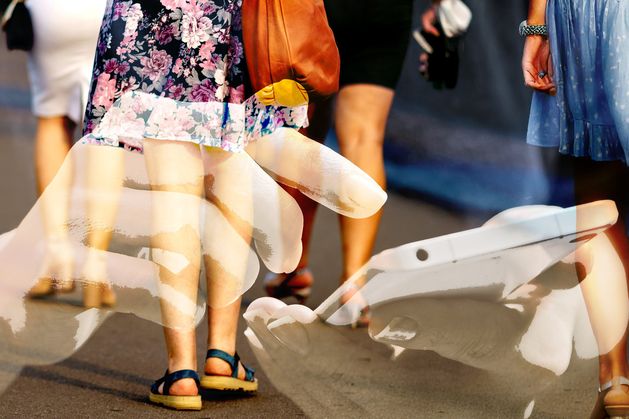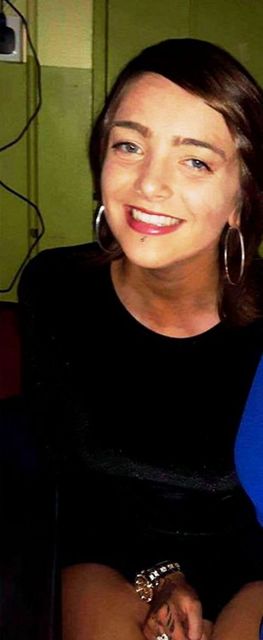Fears that disturbing voyeuristic practice can feed into further, more explicit crime
“Upskirting”, a specific offence in Ireland, is where someone takes intimate photos or videos of a female, mostly using mobile phones, without their knowledge.
But because the recording is usually so covert, it is likely that the target never knows they have been filmed unless they see images of themselves on the internet.
In November 2023 a Dublin father of one who made an upskirt recording of a young woman while she was socialising with friends and family in her home received a five-month suspended sentence and was spared jail.
Luke Haskins (30), of Woodview Close, The Donahies, was a guest at the victim’s house when he was caught making the intimate video with his mobile phone without her consent.
He pleaded guilty to recording an intimate image without consent and Judge Gráinne Malone said it had been a “serious invasion” for the victim in her own home.
The legislation used to convict Haskins was Section 3 of the Harassment, Harmful Communications and Related Offences Act of 2020, which is more broadly known as Coco’s Law.
It gained its name after the family of Nicole ‘Coco’ Fox Fenlon (21) campaigned for it after she took her own life in 2018 due to bullying largely through messages spread on social media.
Under the legislation an “intimate image” means any visual representation, including any accompanying sound or document, of what is, or purports to be, the person’s genitals, buttocks or anal region, and breasts in the case of a female.
The legislation also applies to images of the underwear covering the areas referred to, as well as nude images and images in which the person is engaged in sexual activity.
And while there have been a number of successful prosecutions under Coco’s Law, they are largely in situations of the sharing of revenge intimate images after a relationship break-up.
Nicole ‘Coco’ Fox Fenlon
When people find intimate images of themselves online they can report them to gardaí or to Hotline.ie, which liaises with gardaí in documenting such images.
Hotline.ie is the Irish national reporting centre where members of the public can securely, anonymously, and confidentially report concerns in respect of illegal content online, especially child sexual abuse material (CSAM).
The removal of child sexual abuse images and videos from the internet is the core of its work.
In that sense, Hotline becomes the central location where images are assessed, and it then sets about requesting social media groups to remove them, and signposts them to gardaí and other agencies if prosecution is warranted or further action or assistance is required.
It is a grave violation of a person’s dignity and erodes their feeling of safety
But CEO of Hotline, Mick Moran has said the phenomenon of upskirting is likely under-reported.
“Many people who are targeted don’t know it is happening, and they are unlikely to find the images online because the images may not be shared, and if they are their faces are not visible. They might become aware of them if they are targeted for financial gain, but otherwise they just will not know,” he said.
“It is a behaviour that could escalate too. What can start as upskirting could lead to acts of voyeurism or flashing.”
Chief executive of Dublin Rape Crisis Centre, Rachel Morrogh said upskirting and other forms of non-consensual image-based abuse are insidious crimes that cause much distress to victims.
“It is a grave violation of a person’s dignity and erodes their feeling of safety in their home, while socialising, in school or university, or in the wider community.
“We have seen how some perpetrators of upskirting may also be committing other sexual offences, such as in the case of Dominique Pelicot in France or in the Paul Boyle case here in Ireland.”
The Boyle case mentioned by Ms Morrogh is when around 20,000 images of women and girls’ legs, groins and buttocks, including upskirt photos of schoolgirls, were found on Scotsman Paul Boyle’s mobile phone when an off-duty garda spotted him acting suspiciously on a Luas in Dublin in 2019.
A subsequent garda search of Boyle’s home at Sandyford View, Blackglen Road, Dublin 18, found hundreds of thousands of similar images, along with “extremely explicit” child abuse material.
He was sentenced to a five-and-a-half-year prison sentence, but had that reduced by nearly two years on appeal.
“Our counsellors on the National Rape Crisis Helpline have observed very small numbers of people seeking information or support around the issue of upskirting and we believe that this is partly because there is a low level of awareness that this is a crime,” Ms Morrogh said.
“We also hear feelings of resignation or trivialisation from people who have experienced this first-hand – some don’t think it’s serious enough to get support and others seem to accept this as normalised or habitual behaviour.”
“It is entirely understandable that someone might be deeply affected by upskirting,” she added, stressing that even if a person is unaware they have been targeted they are still a victim.
If you have been affected by any of the issues in this article, call the Rape Crisis Centre on freephone 1800 77 88 88,
#True #level #upskirting #higher #victims #unaware #crime #underreported








